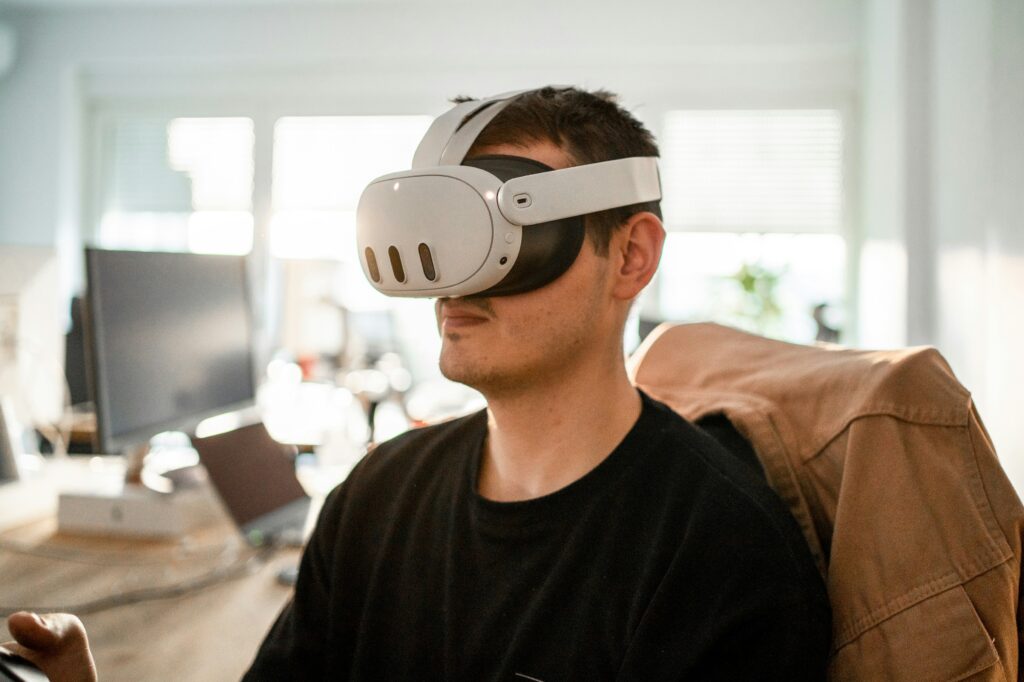Virtual Worlds, Real Money
Gaming isn’t just play anymore it’s commerce. The metaverse is turning digital playgrounds into full scale economies. Inside these virtual worlds, players aren’t just leveling up; they’re staking claims, building brands, and flipping assets for real profit. Skins, properties, and currencies are moving from screen to street value.
Earning isn’t limited to the elite. Casual players join the loop too renting NFTs, running guilds, even micro trading in game loot. Spending happens inside the ecosystem: marketplace buys, avatar upgrades, digital real estate development. And serious players are investing, not just in gear but in economies themselves, from staking tokens to funding new game launches.
The core shift? Ownership. We’re moving from closed, developer owned games to persistent worlds shaped and stocked by players. It’s decentralized, always on, and community powered. Success isn’t about high scores anymore it’s about smart participation in a new digital economy.
Digital Assets Go Big
In 2024, digital assets in gaming aren’t just cosmetic they’re currency. NFTs and tokenized items have shifted ownership from game companies to players. Whether it’s a rare sword, a custom avatar skin, or a plot of virtual land, gamers are now holding real stakes with real scarcity.
This ownership model fuels a booming resale economy. Players can sell, trade, and collect assets across platforms sometimes flipping them for serious cash. You’ve got skins fetching four figures, and digital land parcels being treated like beachfront property. It’s supply and demand, just digital.
What makes these assets valuable? Provenance via blockchain, rarity, and utility. If that sword works in multiple games or raises status in a social space, its price goes up. Limited drops make things scarce. And speculation well, that’s alive and well.
For more on how digital worlds are becoming financial ecosystems, check out the metaverse evolution in gaming.
Skill Based Earnings
Play to earn (P2E) mechanics have flipped gaming from hobby to hustle. It’s not just about beating levels anymore it’s about outsmarting systems, climbing competitive ladders, and monetizing skill. Whether it’s grinding through blockchain powered quests or sweeping decentralized tournaments, players are turning time and talent into crypto payouts.
What’s fueling this shift? A new breed of gamer is emerging: part strategist, part entrepreneur. Some specialize in asset flipping buy low, upgrade fast, sell high. Others build reputations in tournaments, earning tokens and sponsorships. It’s not just side cash either. For many, this is a career move.
To keep up, guilds and DAOs are stepping in, pooling crypto and resources so players can access high tier assets or unlock rare missions. In return, players share profits or vote on economic decisions. It’s coordinated, lean, and designed to win. The line between player and pro is vanishing and it’s not coming back.
New Roles for Developers

Studios aren’t just building games anymore they’re building economies. In the metaverse, developers are expected to design entire ecosystems where players don’t just play, they live, trade, compete, and collaborate. It’s not about level design alone. It’s about creating sustainable digital worlds that can grow on their own.
One of the toughest challenges? Balancing these economies. Developers now act more like regulators than just storytellers. Inflation, scarcity, resource loops these are no longer just backstage concerns. If a sword floods the market or one asset becomes too dominant, entire user experiences suffer. So economy balancing becomes a core mechanic of game development, baked into every decision.
But there’s another layer: freedom. Players in the metaverse expect control of their assets, their trades, their paths. That kind of autonomy forces developers to build more flexible systems that don’t crumble when players push boundaries. It’s a fine line: offer too much freedom and risk destabilization. Offer too little and face a disengaged player base.
Bottom line: developers today are architects of digital societies. The job’s bigger, messier, and way more interesting.
Cross Platform Marketplaces
One of the biggest shifts in the metaverse gaming space is how connected everything’s becoming. Digital wallets are enabling players to carry their items, currency, and identity across multiple games no more starting from scratch every time you log into a new world. Unified inventories and persistent profiles are letting you move smoothly between platforms while keeping your stuff.
This is where blockchain kicks in. It provides the backbone for ownership, ensuring an item you earn or buy is traceable, secure, and scarce by design. That kind of transparency translates to better trust and higher value, especially in markets driven by resales and trading.
But there’s a catch. Openness sounds great, until it collides with platform control. Some major studios still want to keep users inside walled gardens and are hesitant to support true interoperability. That tension between decentralization and control is going to shape how far (and how fast) this ecosystem really evolves. Consumers want freedom. Platforms want leverage. The results are still playing out.
The Pitfalls to Watch
As exciting as the metaverse economy sounds, it’s not all smooth sailing. Just like in the broader crypto world, prices and values bounce around like a pinball. One day your in game sword is worth real world dollars, the next it’s nearly worthless. The volatility is real and it’s built into the open, tokenized nature of these ecosystems.
Then there’s the darker stuff: scams, asset theft, and rug pulls. With high value digital goods floating around, hackers and bad actors see nothing but opportunity. Wallets have been drained, assets stolen, and communities burned. It’s the price of freedom, but that doesn’t make it any less brutal.
Amid the hype and hustle, one rule still holds: if the game stops being fun, the whole thing collapses. The best projects balance opportunity with entertainment. They remember that players show up for the experience not just the payday. It’s a reminder that for this new economy to last, fun has to be the foundation.
Where It’s Going
The Momentum Isn’t Slowing Down
The metaverse continues to gain traction, with gaming sitting at the center of this digital transformation. Technological advancements, blockchain integration, and persistent in game worlds have created entire ecosystems where players don’t just compete they help shape the future of the game itself.
Virtual economies are expanding organically
Platforms are investing heavily in immersive, persistent environments
Developers are aligning infrastructure with open world, user driven models
Gamers as Co Creators
Today’s players are more than just users they’re contributors, investors, and decision makers in the gaming economy. Participation now ranges from governance to game building, forming communities with real influence.
Players can own land, vote on updates, and create in game content
DAOs and player guilds give users collective power
Economic models are evolving to reward both play and contribution
Dig Deeper
Curious about how deep the rabbit hole goes? Learn more about the trajectory of gaming’s transformation in our full breakdown of the metaverse gaming evolution.



